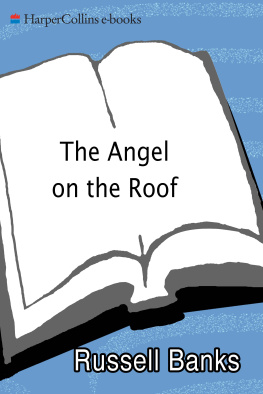Francis Russell - The Boss of Boston
Here you can read online Francis Russell - The Boss of Boston full text of the book (entire story) in english for free. Download pdf and epub, get meaning, cover and reviews about this ebook. year: 2014, publisher: New Word City, genre: Detective and thriller. Description of the work, (preface) as well as reviews are available. Best literature library LitArk.com created for fans of good reading and offers a wide selection of genres:
Romance novel
Science fiction
Adventure
Detective
Science
History
Home and family
Prose
Art
Politics
Computer
Non-fiction
Religion
Business
Children
Humor
Choose a favorite category and find really read worthwhile books. Enjoy immersion in the world of imagination, feel the emotions of the characters or learn something new for yourself, make an fascinating discovery.
- Book:The Boss of Boston
- Author:
- Publisher:New Word City
- Genre:
- Year:2014
- Rating:5 / 5
- Favourites:Add to favourites
- Your mark:
- 100
- 1
- 2
- 3
- 4
- 5
The Boss of Boston: summary, description and annotation
We offer to read an annotation, description, summary or preface (depends on what the author of the book "The Boss of Boston" wrote himself). If you haven't found the necessary information about the book — write in the comments, we will try to find it.
James Michael Curley, the most powerful Irish-American politician in Boston until John F. Kennedy was elected to Congress, was the stuff of legend before his life became fiction in the film The Last Hurrah. Here, in this short-form book from historian Francis Russell, is the story of this twice jailed champion of the people.
The Boss of Boston — read online for free the complete book (whole text) full work
Below is the text of the book, divided by pages. System saving the place of the last page read, allows you to conveniently read the book "The Boss of Boston" online for free, without having to search again every time where you left off. Put a bookmark, and you can go to the page where you finished reading at any time.
Font size:
Interval:
Bookmark:
For the first half of the twentieth century and beyond, James Michael Curley was the most flamboyant and durable figure on Bostons political scene. As mayor - off and on - for sixteen years, he spent four terms in Congress and two in jail, and for two depression years he was governor of Massachusetts. At his death he lay in state for two days in the State House Hall of Flags, the fourth person in the history of the Commonwealth to be so honored. His seventeen-room neo-Georgian mansion on Jamaicaway with shamrocks cut in its shutters was both a landmark of the rise of the immigrant Irish and a nose-thumbing in the direction of Yankee Beacon Hill. He was hated by Proper Bostonians and held in mindless affection by the slums. His Irish-American political associates alternately embraced and knifed him. On several occasions, and long before his death, he received the last rites of the Catholic Church.
His political career began years after the devastating famine in Ireland sent a massive wave of immigrants to America in 1847. Because the end of the Cunard Line was then at Boston, the wretched Irish, illiterate and defeated, landed there in droves. Five percent of them died on the coffin ships on the way over. Transported from their primitive earthbound existence, they were forced to take whatever work they could find, usually in a glutted market, or else starve. Sometimes they did starve in their reeking Paddyvilles and Mick Alleys, where they lived packed closely together in the first urban mass slums of America.
They were the butt of the social pyramid, the unfailing source of exploitable labor: ditch diggers, stevedores, hod carriers, and stableboys. Boston was the center of cheap labor for the country, where construction bosses all over America sent for fresh supplies of Irish workers. The Paddies went as contract laborers in coaches with sealed doors and curtains nailed across the windows and died miserable deaths along the Erie Canal and new railroad lines. Jeremiah ODonovan-Rossa wrote of the wreck and ruin that came upon the Irish race in this foreign land.
These independent foreigners with their uncouth solidarity more than doubled the population of Boston, turning it from a coherent and comprehensive town to an incoherent and incomprehensible metropolis. Overwhelmed, the Old Yankees created their Brahmanism as a kind of defense. The term Brahmin, which Dr. Oliver Wendell Holmes gave them quite by accident, they took for self-assurance, and the name stuck, coming to mean not Dr. Holmess disinterested, bread-and-water Puritanism , but a class-conscious membership in the Yankee State Street financial hierarchy. The Irish were untouchables. Mayor Theodore Lyman called them a race that will never be infused with our own, but on the contrary will always remain distinct and hostile.
Lyman could not have imagined that more than a hundred years later, John Fitzgerald Kennedy author of Profiles in Courage , Pulitzer Prize winner, a member of the Harvard Board of Overseers, and Irish to his core would be elected president.
James Michael Curley was a transition figure, a symbol of the emergence of the famine Irish from their working-class roots to political dominance. It is the recurring phenomenon of one class replacing another. In 1776, Boston merchants overthrew the landed gentry of British rule; it, in turn, was superseded by the Celts. Curleys career was a symbol of this process.
Curleys father, Michael, came to Boston from Galway in 1865 at the age of fourteen. Sarah Clancy, his mother, arrived that same year - a slight twelve-year-old Connemara girl who worked first as a maid on Beacon Hill. Michael Curley became a hod carrier at ten cents an hour by the grace of Patrick Pea-Jacket Maguire, boss of Ward 17, where Galway men clustered. Michael Curley was good-looking in his own stumpy, plodding way; he was strong, and as he grew older, bearded. At twenty-one he married Sarah and took her to a tiny flat in one of the rotting three-story apartment buildings known as three-deckers off Northampton Street, where hundreds of those fetid wooden tenements had been thrown up by shady contractors for the shanty Irish. Beyond Northampton Street lay the North Bay, and at low tide the marsh gas sifted in across the mud mixed with the sour permanent stench of the Southampton Street dump. It was said that in Ward 17 children came into the world with clenched fists. In that Roxbury flat, James Michael Curley, the second son, was born in 1874.
The boys playground was the water-front slum. By the time he was five he ran with an urchin gang, pilfering, dodging the cops, wandering along the edge of the Roxbury flats flinging stones at the wharf rats that scuttled across the dumps, and selling old whiskey bottles they found there to Jakie the Junkie. Daily they watched the cargo schooners coming up the Fort Hill channel from far off places like Maine or Nova Scotia, and in the summer they played around the old Roxbury canal or swam in the murky South Bay. Sometimes, but rarely, they wandered outside the ward to the newly filled area of the Back Bay with its wide avenues and brownstone-front townhouses. To tenement boys these opulent mansions with their turrets and gablings seemed like castles.
By the time Jim was ready for grammar school he was peddling papers, working as a bundle and delivery boy at the Washington Market. When he was ten his father died. Mike Curley had always been proud of his own strength, and when one of the workmen challenged him to lift a 400-pound stone onto a wagon, he couldnt resist the bet. He managed to raise it but then collapsed under its weight. Three days later he was dead.
The widowed Sarah kept the family together by scrubbing doors in a downtown office building. Jim and his brother John, two years older, wrapped bundles and served customers at the Washington Market in their free time until the end of grammar school - their last schooling. At twelve, Jim worked in Gales drugstore an hour and a half before he went to school and from four-thirty until eleven after school.
Reared in poverty and alienated from any sense of community, young Jim Curley formed a hard, unwavering, egocentric determination to succeed. The road up from his Fellows Court flat to the imagined great house on Beacon Hill was through politics; there was no other road for an Irish slum boy. Politics was a game he would play as he found it and would play to win. In the harshness of his youth, he instinctively grasped Boss Martin Lomasney s axiom that the mass of people are interested mainly in food, clothing, and shelter and would trade their votes to obtain them.
At fifteen, after a series of small jobs, he was hired as a deliveryman driving a wagon for C.S. Johnson, Grocers. He was strong like his father, wily and wiry, and except for his somewhat foxlike nose, handsome. He had a resounding voice and soon learned to modify the harshness of his gutter speech. From time to time he would drop in at Currans livery stable, where the workers for the political bosses gathered, or at One-Armed Peter Whalens tobacco store, the political hangout of the district.
Meanwhile, he enrolled two nights a week at the Boston Evening High School. In the public library, he read Dickens and Thackeray and Shakespeare, and the Boston Transcript . He taught Sunday school, ushered and passed the plate at St. Philips on Harrison Avenue, and joined the Ancient Order of Hibernians. He became chairman of committees for picnics, outings, minstrel shows, and church supper dances. Life was too busy for games and girls and other pleasantries.
He knew the families on his grocery route as well his own family; he talked with people and was always obliging and always available. By the time he reached eighteen, he wore an indefinable air of future success that a savvy politician like Whalen could spot at once. In 1898, One-Armed Peter encouraged him to run for the Boston Common Council against Pea-Jackets organization and backed him with his first contribution. Curley won by several hundred votes, but by the time Pea-Jackets henchmen had finished with the ballot boxes, he found himself counted out. The next year, organizing his own band of strong-arms and after weeks of pre-election gang fights and corner brawls, he won - too handily for Pea-Jacket to challenge him. At twenty-six he formally entered political life as one of the three council members from Ward 17.
Next pageFont size:
Interval:
Bookmark:
Similar books «The Boss of Boston»
Look at similar books to The Boss of Boston. We have selected literature similar in name and meaning in the hope of providing readers with more options to find new, interesting, not yet read works.
Discussion, reviews of the book The Boss of Boston and just readers' own opinions. Leave your comments, write what you think about the work, its meaning or the main characters. Specify what exactly you liked and what you didn't like, and why you think so.




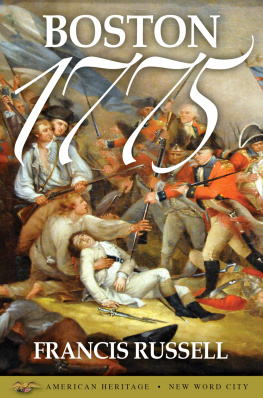
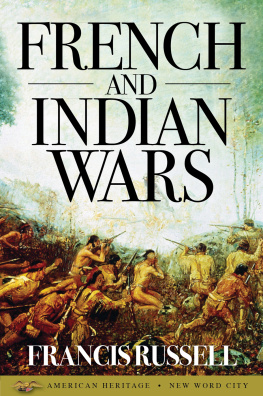

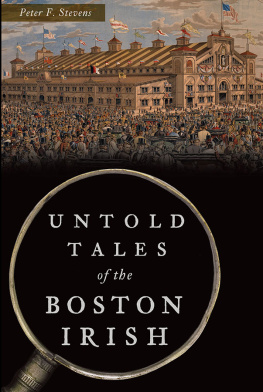
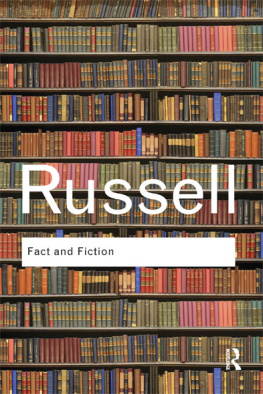
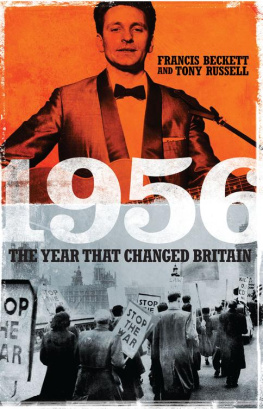
![Russell - On education [recurso electrónico]](/uploads/posts/book/137691/thumbs/russell-on-education-recurso-electro-nico.jpg)
